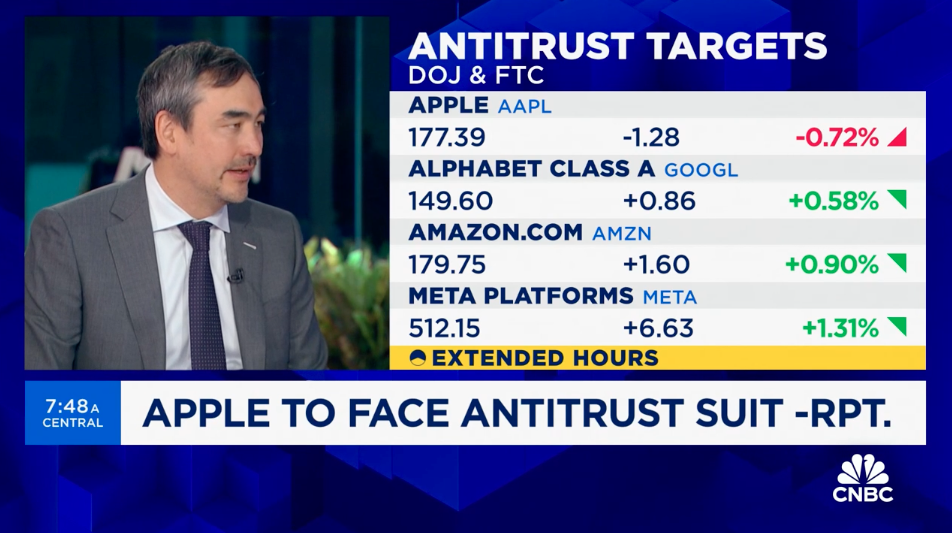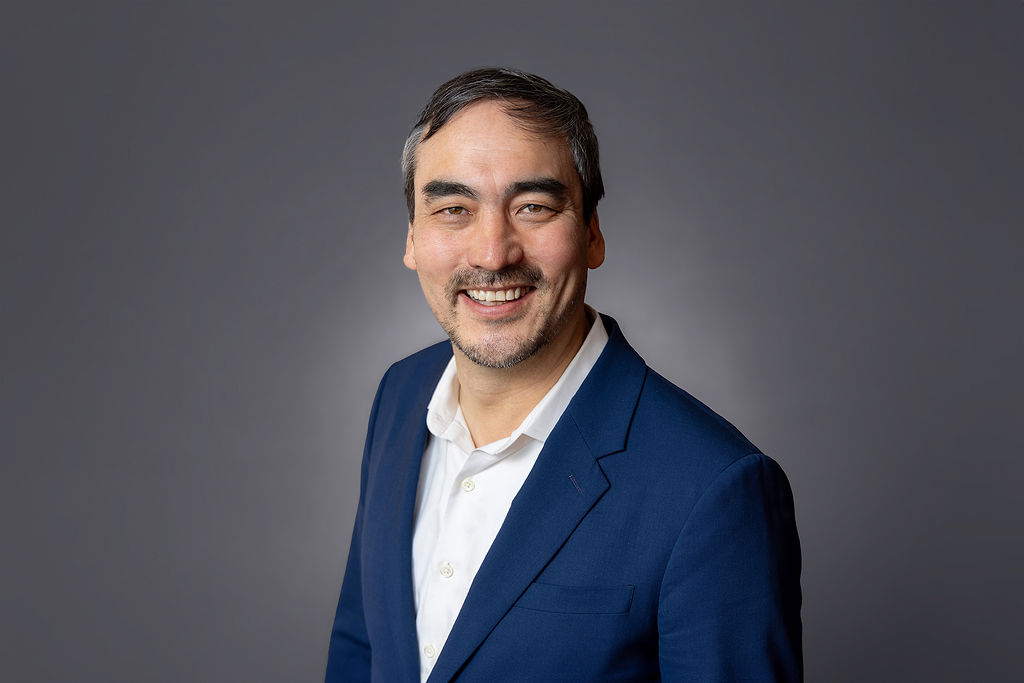Tim Wu, a professor at Columbia Law School who previously served as President Biden’s adviser on technology and competition policy, said the complaint “goes straight down main street” by targeting the core of Apple’s vast empire: the iPhone.

The Department of Justice, along with 16 states including California, filed a sweeping antitrust lawsuit against Apple last week. The government alleges that the trillion-dollar company’s practices around its iPhone have quashed competition by limiting access to its app store, constraining the ability to send messages across different platforms and blocking alternative wallet payment systems. The suit is part of a suite of antitrust legal actions aimed at breaking alleged monopolies by tech behemoths including Google, Meta, and Amazon. We’ll talk about what these suits mean for Apple’s devoted user base and the tech industry.
“When overly focused on metrics like growth and employment, economic analysis can fail to grasp how most Americans actually experience the economy. Most people understand all too well that those in the broad economic middle of the country are having a much harder time than their parents did — and that something went seriously astray starting in the early 2000s. They want a more fundamental kind of economic change.
To succeed in the 2024 election, Mr. Biden needs to convince voters that he has begun a long fight against today’s toxic form of capitalism. He needs them to understand that he is making the economy fairer and more productive. He needs to explain that Donald Trump’s invocations of economic grievance are real and justified but that unlike Mr. Trump — who used those grievances to fuel tribal politics while doling out corporate tax cuts and other giveaways to wealthy friends and donors — he is actually doing something about it.”
The fight against corporate power is also a key message for Biden on the campaign trail. “The American people want a president who is standing up to the most powerful companies and most people identify the tech companies as the most powerful,” said Columbia Law School Professor Tim Wu, who previously led competition policy for Biden. “Americans don’t like unaccountable power.”
Tim Wu, a professor at Columbia Law School who previously served as President Biden’s adviser on technology and competition policy, said the complaint “goes straight down main street” by targeting the core of Apple’s vast empire: the iPhone.
“It’s the thing that’s just staring everyone in the phone: How is it that Apple has been able to maintain these profit margins for so long given that Android phones are often cheaper?” said Wu.
“Antitrust has changed and is essentially back in an FDR-style,” said Tim Wu, a professor at Columbia Law School and architect of the Biden administration’s antitrust policies. “I think a signature of the FDR-style antitrust was that they didn’t play around the edges. If they thought an industry was anti-competitive, they sued everybody, including the largest monopolists, for stuff that was core to their business.”
Tim Wu, the special assistant to the President for technology and competition policy from 2021 to 2023, while noting Apple’s “insane profits margins and demographics,” said the case is hard to handicap based on available evidence. The Columbia University professor did say it is unlikely Justice settle with Apple, based on its demands in the lawsuit.
”This case strikes at the core of Apple’s business,” Wu said in an interview.
Tim Wu, a professor at Columbia Law School who previously served as President Biden’s adviser on technology and competition policy, said the complaint “goes straight down main street” by targeting the core of Apple’s vast empire: the iPhone.
“It’s the thing that’s just staring everyone in the phone: How is it that Apple has been able to maintain these profit margins for so long given that Android phones are often cheaper?” said Wu.
Tim Wu, Columbia University Law School professor and former Biden administration antitrust advisor, joins ‘Squawk Box’ to discuss the Justice Department’s expected antitrust case against Apple, the rationale behind the government going after tech giants on antitrust grounds,
“This case is, unfortunately, not the first time a group has opportunistically hijacked the First Amendment to defend its business model. The abuse of high constitutional principle to defend low corporate behavior was pioneered by the tobacco industry, which has used the First Amendment to weaken warning labels and advertising restrictions, based on the premise that such labels interfered with its constitutional right to remain silent about the risks of lung cancer. When it comes to kids, Big Tech is following the path blazed by Big Tobacco in more ways than one. And the California case is part of a larger campaign by major social-media firms to use the First Amendment against efforts to protect children from social media’s harms; a similar law in Arkansas is under attack as well.”
Tim Wu is an author, policy advocate, and professor at Columbia Law School. Wu’s best known work is the development of Net Neutrality theory, but he also writes about private power, free speech, copyright, and antitrust. His books The Master Switch and The Attention Merchants have won wide recognition and awards.
Wu has worked in academia, federal and state governments. He worked at the White House for the National Economic Council; at the Federal Trade Commission, for the New York Attorney General’ as a fellow at Google, and for Riverstone Networks in the telecommunications industry. He was a law clerk for Judge Richard Posner and Justice Stephen Breyer. He graduated from McGill University (B.Sc.), and Harvard Law School.
Wu is a contributing opinion writer for the New York Times, and was formerly a contributing writer at NewYorker.com and contributing editor at the New Republic. He has been named to the Politico 50 twice, to America’s 100 most influential lawyers, and also won awards from Scientific American magazine, National Law Journal, 02138 Magazine. He has twice won the Lowell Thomas Award for travel writing and in 2017 he was named to the American Academy of Arts and Sciences.
